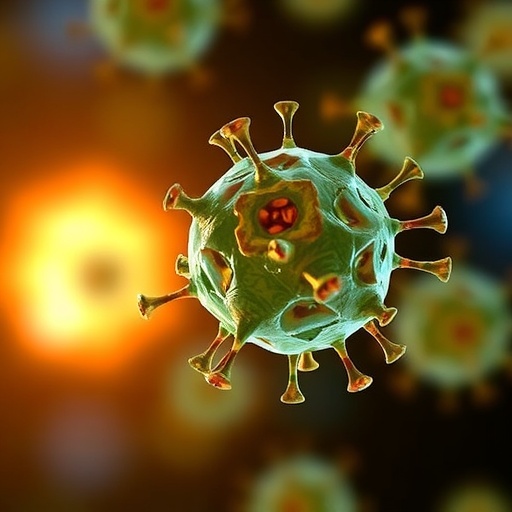In the relentless battle against cancer, T cells have emerged as pivotal warriors within the adaptive immune system. These specialized lymphocytes possess the remarkable ability to identify and destroy malignant cells, positioning them as a cornerstone in the evolving landscape of cancer immunotherapy. The precise mechanisms by which T cells recognize tumor cells hinge on their interaction with tumor antigen peptides displayed by Major Histocompatibility Complex (MHC) molecules, enabling targeted immune responses that hold promise for durable cancer eradication.
Central to T cell recognition of tumors are two primary classes of antigens. Tumor-specific neoantigens arise from somatic mutations unique to cancer cells, exhibiting high immunogenicity and minimal expression in normal tissues. Such neoantigens offer exquisite specificity, reducing the risk of off-tumor effects. Conversely, tumor-associated antigens, while not exclusive to malignant cells, are often overexpressed in tumors and serve as additional targets to mobilize T cell cytotoxicity. This dual targeting strategy underscores the complexity of immune surveillance within heterogeneous tumor ecosystems.
Despite the potent capabilities of T cells, tumors have evolved sophisticated mechanisms to evade immune detection and destruction. Among these, the induction of T cell exhaustion within the immunosuppressive tumor microenvironment (TME) significantly impairs the effector functions of infiltrating lymphocytes. This exhaustion is characterized by sustained expression of inhibitory receptors and diminished cytokine production, effectively blunting the anti-tumor immune response and fostering tumor progression under an immunologically suppressive milieu.
Moreover, tumors can undergo immunoediting, a dynamic process wherein cancer cells lose or alter their antigenic profiles to escape T cell recognition. This antigenic plasticity poses a substantial barrier to effective immunotherapy, necessitating strategies that address tumor heterogeneity and adaptability. Physical barriers within the TME, including aberrant vasculature and stromal components, further obstruct T cell infiltration and limit their capacity to exert cytotoxic effects at tumor sites.
Modern immunotherapeutic approaches leverage the diverse functionalities of T cells to circumvent tumor evasion. Antibody-based therapies, such as immune checkpoint inhibitors, alleviate inhibitory signals like PD-1/PD-L1 and CTLA-4 pathways, reinvigorating exhausted T cells. Bispecific T cell engagers (BiTEs) bridge T cells to tumor cells, facilitating direct cytotoxic engagement. These modalities have revolutionized treatment paradigms, achieving remarkable clinical responses in several cancer types.
Adoptive Cell Transfer (ACT) represents another therapeutic frontier in which autologous or allogeneic T cells are expanded or genetically engineered ex vivo and then infused back into patients. Tumor-Infiltrating Lymphocyte (TIL) therapy involves isolating and expanding naturally occurring tumor-specific T cells. Genetically modified therapies, including Chimeric Antigen Receptor (CAR) T cells and T Cell Receptor-engineered (TCR-T) cells, enhance recognition capabilities against specific tumor antigens, opening new avenues for hematologic and solid tumor treatment.
Cancer vaccines are designed to prime the immune system by presenting tumor antigens, inducing robust, antigen-specific T cell responses. These vaccines serve as both prophylactic and therapeutic tools, aiming to generate durable immunity against existing tumors or prevent tumor recurrence. Despite their promise, the immunosuppressive TME and antigenic variability continue to challenge vaccine efficacy in clinical contexts.
Professor Tao Dong emphasizes the necessity of combination therapies that integrate these distinct immunotherapeutic modalities. Such regimens are designed to conduct a multifaceted assault on cancer—overcoming antigen escape, reversing T cell exhaustion, and dismantling the physical and immunological barriers of the TME. The orchestration of these therapies holds the key to overcoming the limitations of monotherapies and improving patient outcomes comprehensively.
Cutting-edge research efforts are focused on two critical axes that could revolutionize T cell immunotherapy. First, the identification and cataloging of precise tumor antigens, alongside sophisticated T cell receptor (TCR) libraries, aim to tailor treatments uniquely suited to individual tumor antigen landscapes. Second, unraveling the nuanced biology of T cell subsets and their functional states promises to yield biomarkers for optimizing patient selection and predicting therapeutic responses, thus personalizing immunotherapy at an unprecedented scale.
This comprehensive understanding of T cell-mediated immunity and the multifarious avenues of immunotherapeutic intervention form a robust framework for pioneering more effective, resilient cancer treatments. Researchers and clinicians are poised to translate these insights into clinical success, addressing enduring challenges such as tumor heterogeneity, immune suppression, and therapy-induced toxicities.
As the field advances, technological innovations including single-cell omics and spatial transcriptomics are refining our ability to dissect T cell-tumor interactions in situ, providing granular insights into immune evasion and therapeutic resistance. These precision tools facilitate the rational design of next-generation immunotherapies, with the potential to unlock enduring remission and possibly cure for diverse malignancies.
In sum, leveraging T cells for cancer immunotherapy embodies a paradigm shift, harnessing the specificity, adaptability, and potency of adaptive immunity. The convergence of molecular understanding, engineering prowess, and clinical acumen heralds a new era in oncology—one where immune cells are not just defenders but powerful allies in the quest to conquer cancer.
Subject of Research: Not applicable
Article Title: Leveraging T cells for cancer immunotherapy
News Publication Date: 21-Oct-2025
References: DOI: 10.1007/s44466-025-00007-z
Image Credits: Professor Tao Dong Team, University of Oxford, Oxford, UK
Keywords: Cancer immunotherapy, T lymphocytes, Immunity, Tumor microenvironments, Antigens, Neoantigens, Cancer vaccines, Cancer treatments, Biomarkers, Cell biology




